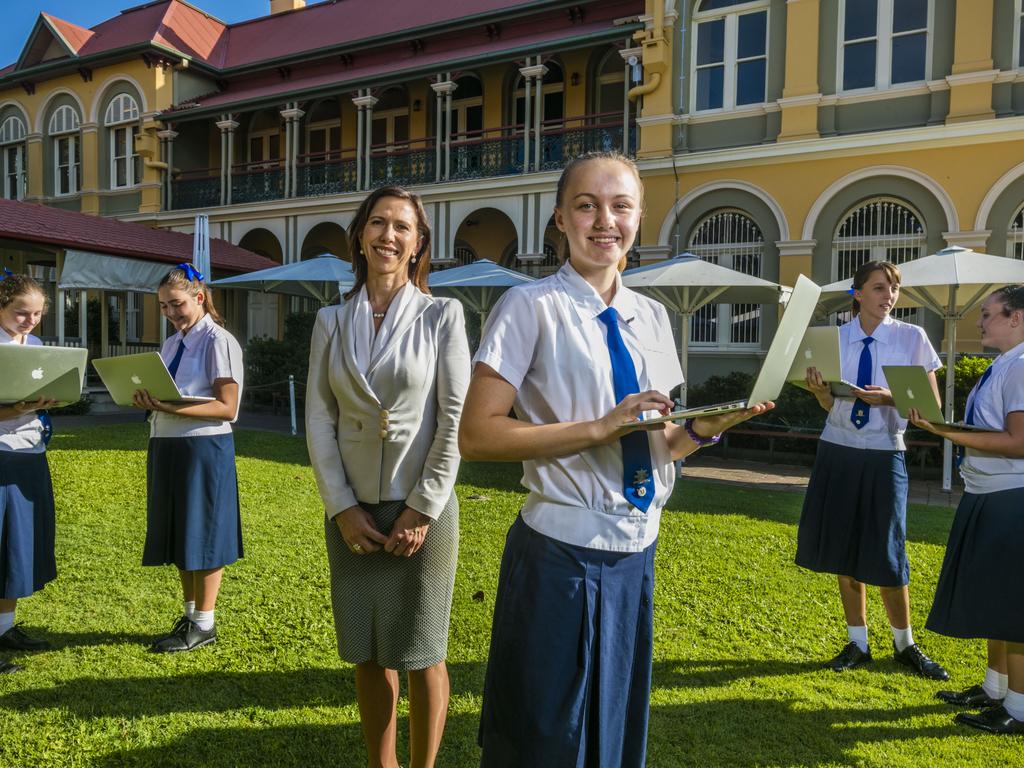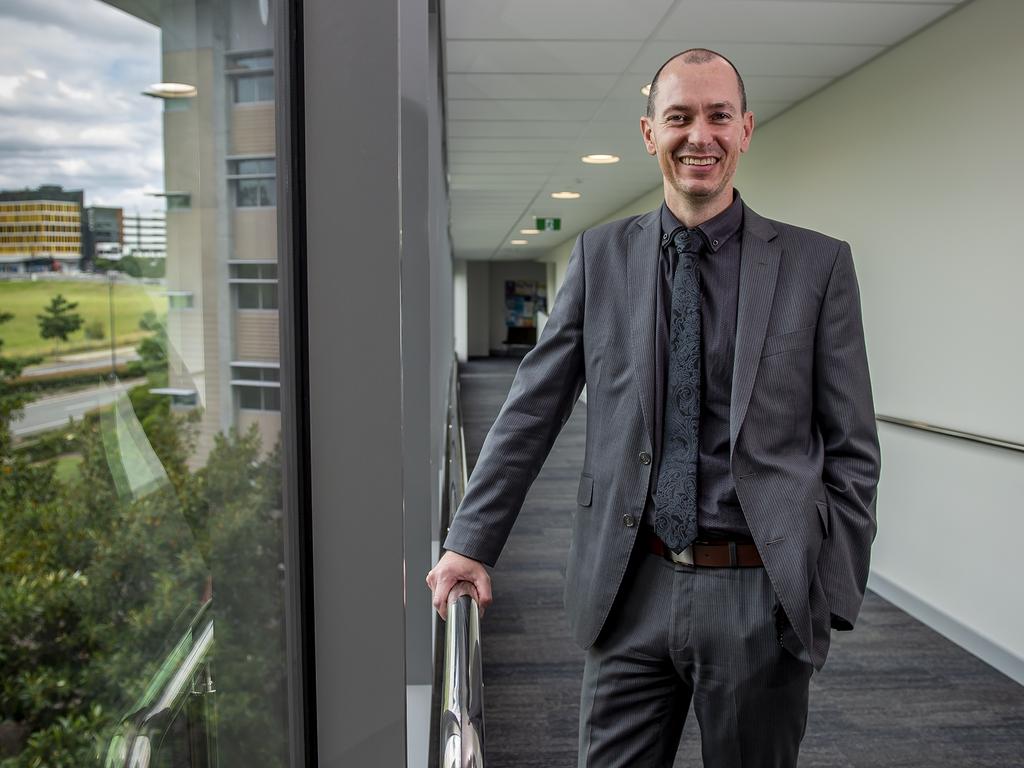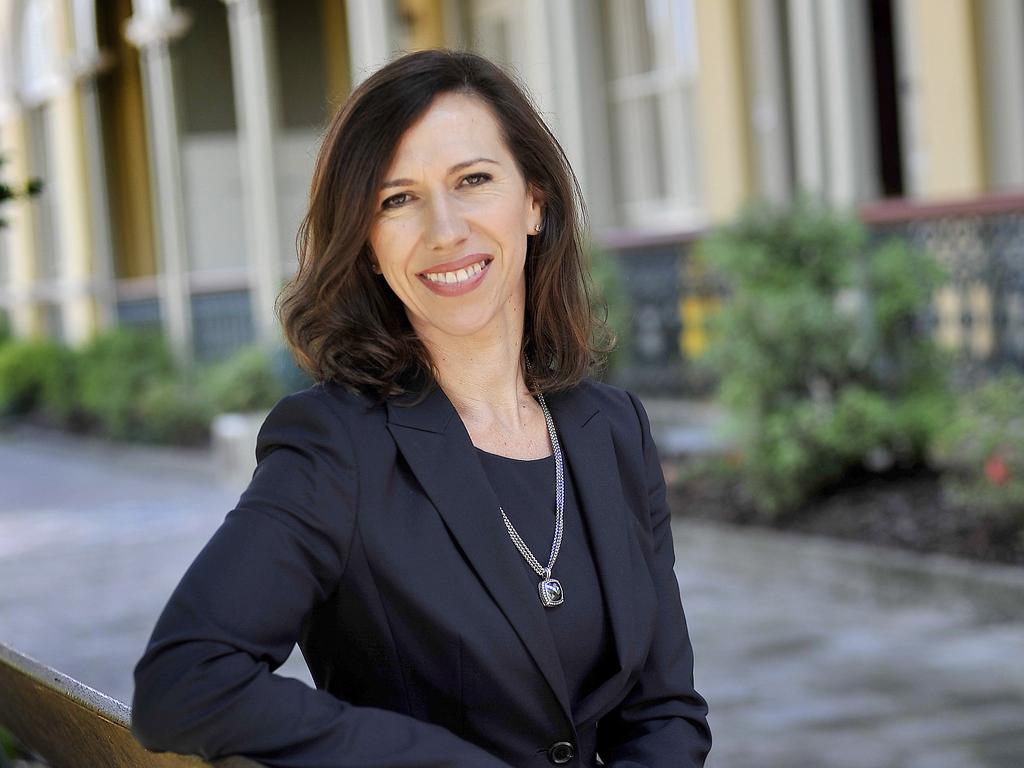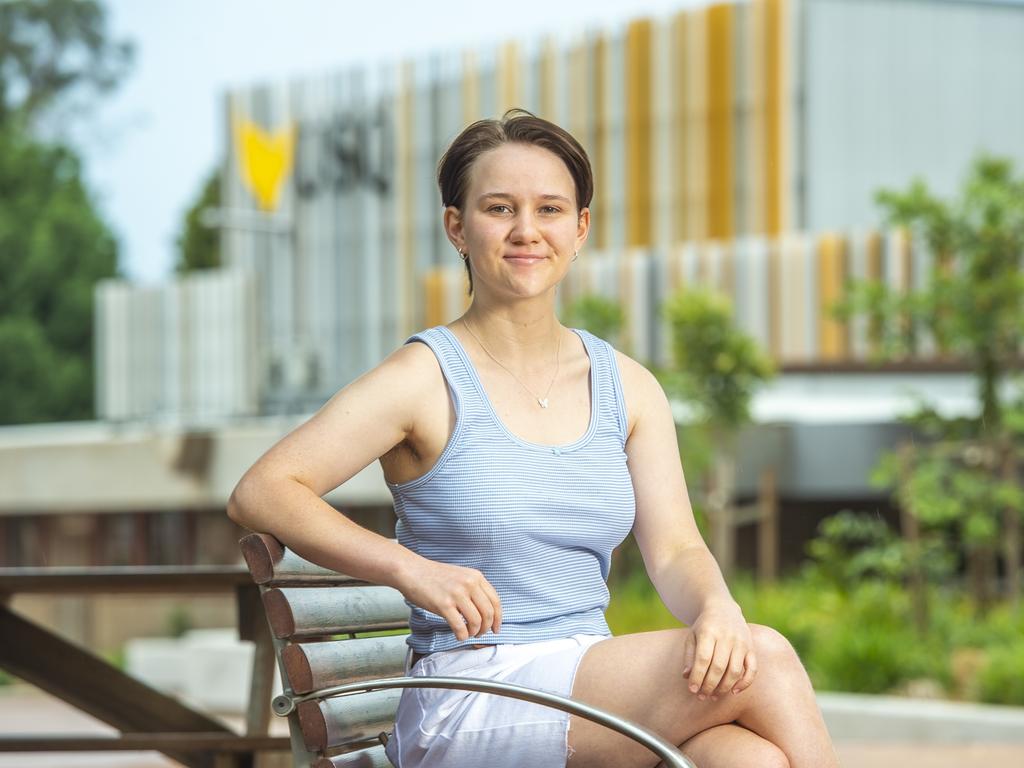ATAR results Qld: How COVID-19 has affected student preferences
The coronavirus pandemic has had an impact not necessarily on students’ academic performance, but their uni preferences.
QLD News
Don't miss out on the headlines from QLD News. Followed categories will be added to My News.
Health heroes who battled COVID-19 have been credited for a rise in Year 12 students considering studying medicine and science, as thousands await ATAR results this weekend.
Queensland will for the first time see results after implementing the Australian tertiary admission rank, which ranks students from 99.95 in increments of 0.05, bringing it in line with other states after having long been touted as fairer and more precise than the OP system.
It comes as industry experts say that after the pandemic, education has never been more valuable with students encouraged to take on jobs in areas like teaching or nursing where there will be skill shortages.
But social researcher Mark McCrindle said the year also resulted in an exacerbation of focusing on early offers to university by students, who were plagued by career uncertainty and anxiety.
He said despite fee increases across some degrees, students are still choosing to pursue their passions, with medicine even more popular than previous years.

“Health is number one and obviously it’s been the year where our health and medical practitioners have been our heroes and they’ve been really well profiled and respected so to see that dominating is great,” he said.
“They’re not only role models, but it’s the year which has shown whether we’re in recession or if a pandemic hits, we need our health professionals.
“We’ve got a growing and ageing population and that’s a pretty resilient career. “
This has been seen at universities such as the University of Southern Queensland, where Bachelor of Nursing has taken out the top spot for undergraduate degrees with the most applications, followed by Bachelor of Education (Primary) and Bachelor of Aviation.
USQ pro vice-chancellor (students) Professor Joshua Pienaar said the university had seen an increase of more than 200 per cent in early offer applications compared to last year, attributing the rise most likely to be because of COVID-19.
“I think in a year of such global uncertainty, these early offers gave control back to the year 12 cohort. Whatever the world threw at them, they had the security of knowing they had a plan, and a good one at that,” he said.

Over 4000 students received early offers in recent weeks, QTAC chief executive John Griffiths said.
“QTAC is in the business of connecting people with opportunities – while we have a number of students waiting on the outcome of their school results, ATAR and subsequent offers to be made throughout December and January, on November 20 QTAC made 4697 early offers to Queensland Year 12 students,” he said.
Brisbane Girls Grammar principal Jacinda Euler said the cohort were resilient and confident in understanding the world is an uncertain place after COVID-19, with students highly interested in science and medicine fields.
“We have around 50 per cent per cent of our girls, last year it was 49 per cent, that will go into a science based tertiary course, with a very high representation in medicine and health related fields and pure science and mathematics,” she said.

“Certainly this year that particular interest in the importance of science as solving some of the problems of the world has certainly underlined the relevance and importance of science.”
Education Minister Grace Grace said the cohort had shown immense courage, resilience and patient during a very difficult time with COVID-19.
Over October and November, more than 37,000 students sat exams in 81 subjects at over 450 venues across the state, as part of the biggest reform to Queensland’s senior schooling, with the state government committing $133.4 million over three years to support the system.
“I’d like to congratulate all students on their achievements this year – I’d also encourage students to remember that their ATAR score is not the be-all and end-all – one number does not make you a better person and will not define your future career,” Ms Grace said.
“The transition involved a tremendous amount of work, including extensive training and resources provided to teachers, students and schools.”
Queensland Teachers’ Union president Kevin Bates said overall the year was successful despite first time hiccups, but a change of this magnitude was always going to be “extremely taxing” for students, teachers, principals and families.
“It’s certainly been a very big year not just because we’ve moved to an entirely new system of curriculum, assessment and reporting and tertiary entrance all on top of each other … it’s been a complete redesign of senior schooling,” he said.
“This will be the first time every student in Queensland will receive an ATAR who is eligible to receive one and I know those numbers are much higher than under the OP system – we were down to under 50 per cent of students eligible for an OP and only 26 per cent of students using OP to get access to university.
“My understanding is the eligibility for this system is much higher and we’ll see those numbers point to whether or not the system has had the impact desired.”

POWERING ON AFTER UNPRECEDENTED YEAR
It was a final year of school fraught with unprecedented hurdles and “many, many tears”, but high school graduate Catherine Power remains hopeful looking toward her future.
The Toowoomba State High School graduate is one of thousands of Queensland school leavers eagerly awaiting with “all fingers and toes crossed” for their ATAR results, which will be released on Saturday.
Ms Power said the year was a struggle, with the introduction of a new ATAR university placement system after she battled through a year impacted by COVID-19.
But the end of the year was the highlight for Ms Power, who joined her friends in sharing how grateful this year’s cohort was to their teachers.
“Our grade was collectively sobbing at our graduation ceremony as we realised all that we’ve been through and survived,” she said.
“My cohort has had a lot of obstacles – throughout the year our general mood was pretty low, having so many of our landmark senior events being cancelled.
“I have to admit though that I found most of the year surreal, a lot of us rolled with the punches to the social side of our last year of school. But really it was the learning aspect that has been stressful to say the least.”
Now Ms Power is looking to study in a Bachelor of Paramedicine at the University of Southern Queensland.
“My career goals are to enter research in rural health impacts,” she said.
“To get there I’m hoping to gain experience from being an active paramedic and then perhaps become a doctor, practising both vocations in rural areas.”
USQ BY THE NUMBERS
4697 have already received early offers from QTAC
200 per cent increase in early offer applications compared to last year at USQ
USQ UNDERGRADUATE DEGREES WITH MOST APPLICATIONS
Bachelor of Nursing
Bachelor of Education (Primary)
Bachelor of Aviation
Bachelor of Education
Bachelor of Science
Bachelor of Engineering (Honours)
* This content is sponsored by the University of Southern Queensland
Originally published as ATAR results Qld: How COVID-19 has affected student preferences








